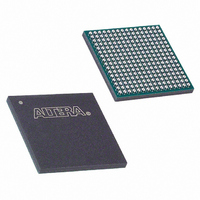EP3C16F256C8 Altera, EP3C16F256C8 Datasheet - Page 42

EP3C16F256C8
Manufacturer Part Number
EP3C16F256C8
Description
IC CYCLONE III FPGA 16K 256FBGA
Manufacturer
Altera
Series
Cyclone® IIIr
Datasheets
1.EP3C5F256C8N.pdf
(5 pages)
2.EP3C5F256C8N.pdf
(34 pages)
3.EP3C5F256C8N.pdf
(66 pages)
4.EP3C5F256C8N.pdf
(14 pages)
5.EP3C5F256C8N.pdf
(76 pages)
Specifications of EP3C16F256C8
Number Of Logic Elements/cells
15408
Number Of Labs/clbs
963
Total Ram Bits
516096
Number Of I /o
168
Voltage - Supply
1.15 V ~ 1.25 V
Mounting Type
Surface Mount
Operating Temperature
0°C ~ 85°C
Package / Case
256-FBGA
For Use With
544-2601 - KIT DEV CYCLONE III LS EP3CLS200P0037 - BOARD DEV/EDUCATION ALTERA DE0544-2411 - KIT DEV NIOS II CYCLONE III ED.
Lead Free Status / RoHS Status
Contains lead / RoHS non-compliant
Number Of Gates
-
Other names
544-2461
Available stocks
Company
Part Number
Manufacturer
Quantity
Price
Part Number:
EP3C16F256C8
Manufacturer:
ALTERA/阿尔特拉
Quantity:
20 000
Company:
Part Number:
EP3C16F256C8N
Manufacturer:
ALTERA
Quantity:
816
Page 42
Configuration Software Settings
f
f
■
■
■
■
To find the correct pin, refer to the Device Pin-Outs page of the Literature section of
the Altera website (www.altera.com).
Simulation
The altpll megafunction supports behavioral and timing simulation.
For more information about simulation support and methods, refer to the
section in volume 3 of the Quartus II Handbook.
This section covers several configuration options that you can set in the Quartus II
software before you compile to generate configuration or programming files. Your
board and system design is affected by these settings and pins.
Optional Configuration Pins
Prior to generating the configuration files, you should take the following optional
configuration pins into your consideration according to your board and system
design. You can enable the following optional configuration pins on the General tab
of the Device and Pin Options dialog box.
CLKUSR
By default, the initialization clock source is from the 10 MHz (typical) internal
oscillator. The advantage of using the internal oscillator is that you do not need to
send additional clock cycles from an external source to the CLKUSR pin during the
initialization stage. However, if you have to synchronize the initialization of the
multiple devices or to delay the initialization, a Cyclone III device provides the
flexibility to control when your device enters user mode using CLKUSR pin. The
Enable user-supplied start-up clock (CLKUSR) option in the Quartus II software
allows you to select which clock source is used for initialization; either the internal
oscillator or external clocks provided on the CLKUSR pin. Supplying an external clock
on CLKUSR does not affect the configuration process. After all the configuration data
is accepted and the CONF_DONE goes high, Cyclone III devices require 3,185 clock
cycles to initialize properly and enter user mode. Cyclone III devices support a
CLKUSR f
clock, you can use it as a user I/O pin.
inclk[1,0] – dedicated clock input pin (CLK[15..0])
clkswitch, areset, pfdena, scandata, scanclk, configupdate,
scanclkena, phasecounterselect[2..0], phaseupdown, phasestep –
User I/O or logic array signal
c[4..0] – dedicated PLL clock output pin (only c0) or user I/O or logic array
signal (c0-c4)
clkbad[1,0], locked, activeclock, scandone, scandataout, phasedone
– User I/O or logic array signal
MAX
of 133 MHz. When you are not using the CLKUSR pin to supply external
© November 2008 Altera Corporation
Design and Compilation
Simulation














